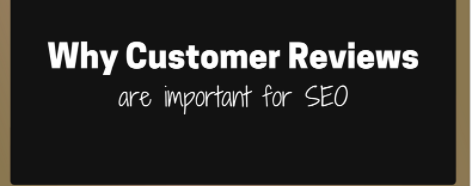Customer Reviews & Search Engine Optimization (SEO)

By Debbie Gregory.
Good customer reviews can truly improve your revenues and small Veteran Owned Business. When we are evaluating a new product, service, or website to make a purchase, most of us look over reviews to learn more before hitting the purchase button. Every type of business needs good reviews. Did you know that they can also improve your Search Engine Optimization known as SEO? Good reviews and Search Engine Optimization or SEO work together to provide your business maximum benefits.
Search Engine Optimization or SEO is the process of maximizing the number of visitors to a particular website by ensuring that the site appears high on the list of results returned by a search engine. In simple terms, search engine optimization is anything done to improve the ranking of a website on search engine page results. The better your rankings, the more people and users will be able to find your Small Veteran Owned Business. The web provides you a huge base of potential customers. The key to obtaining greater traffic and bringing potential customers to your website and business is integrating content with search engine optimization. Revies, especially good ones are excellent content.
You might compare a customer review to a report card or grade. It can tell potential customers all about your products, services, and business. A good review can encourage more business and a poor review can make potential customers turn away. If you have good reviews with four and five stars, then potential clients will also be willing to pay more and order greater quantities for your products.
Buying decisions are driven by customer reviews. Did you know that over 90 percent of shoppers read reviews online before making any type of purchase? Over 70 percent will not take any action until they read a review on your business. Your reviews are tied to your success. Your online reputation is very important and even more so now during this pandemic when so many consumers are purchasing products and services online. It does not matter what your business markets, your online reviews will make the difference on whether a potential client makes a purchase with your company. It will directly drive your success or failure.
More and more consumers are relying on search engines such as Google and expecting the highest-rated products or services to come up in their results from the best companies. Google and other search engines need customer reviews to determine if a particular business is deserving of the highest search results. This is how customer reviews and Search Engine Optimization, or SEO go hand in hand. It is also important for you to reply to customer reviews. We highly recommend that you create a Google My Business Profile.
It is important to ask your customers to review you on Google, especially happy and satisfied customers. Perhaps you are shy and find it a little difficult or uncomfortable to ask for a customer reviews on Google. Get over it! More than likely your customer is happy to do so and if they decline, another customer will.
The best time to ask a customer for a review is when your customers or clients are very happy with the services or products that you provide. You should ask all happy customers to write a review because the more positive reviews you have on Google, Yelp, or other search engines, the more you will be indexed and gain new clientele. Maybe even offer happy customers a discount on their next purchase to show your appreciation. It is always important to thank customers for good reviews too.
The best way to collect review is to set up a custom branded review landing page. There is review management software. The ten best we were able to find are:
- Podium
- myPracticeReputation
- Rize Reviews
- Swell,
- Birdeye
- Reviewinc
- Yext
- Get More Reviews
- Doctible
- MyReviewDashboard
Each offers specialized services such as its own personalized landing page with a dedicated URL to help you grow your customer reviews.
VAMBOA, the Veterans and Military Business Owners Association hopes you enjoyed this article and found it valuable to your business. We encourage you to join VAMBOA. There are not any membership fees or dues. Here is a link for you to join: https://vamboa.org/member-registration/











